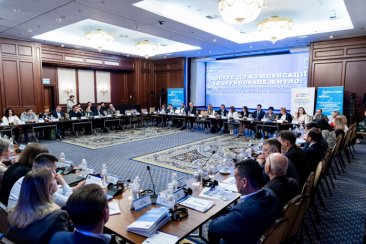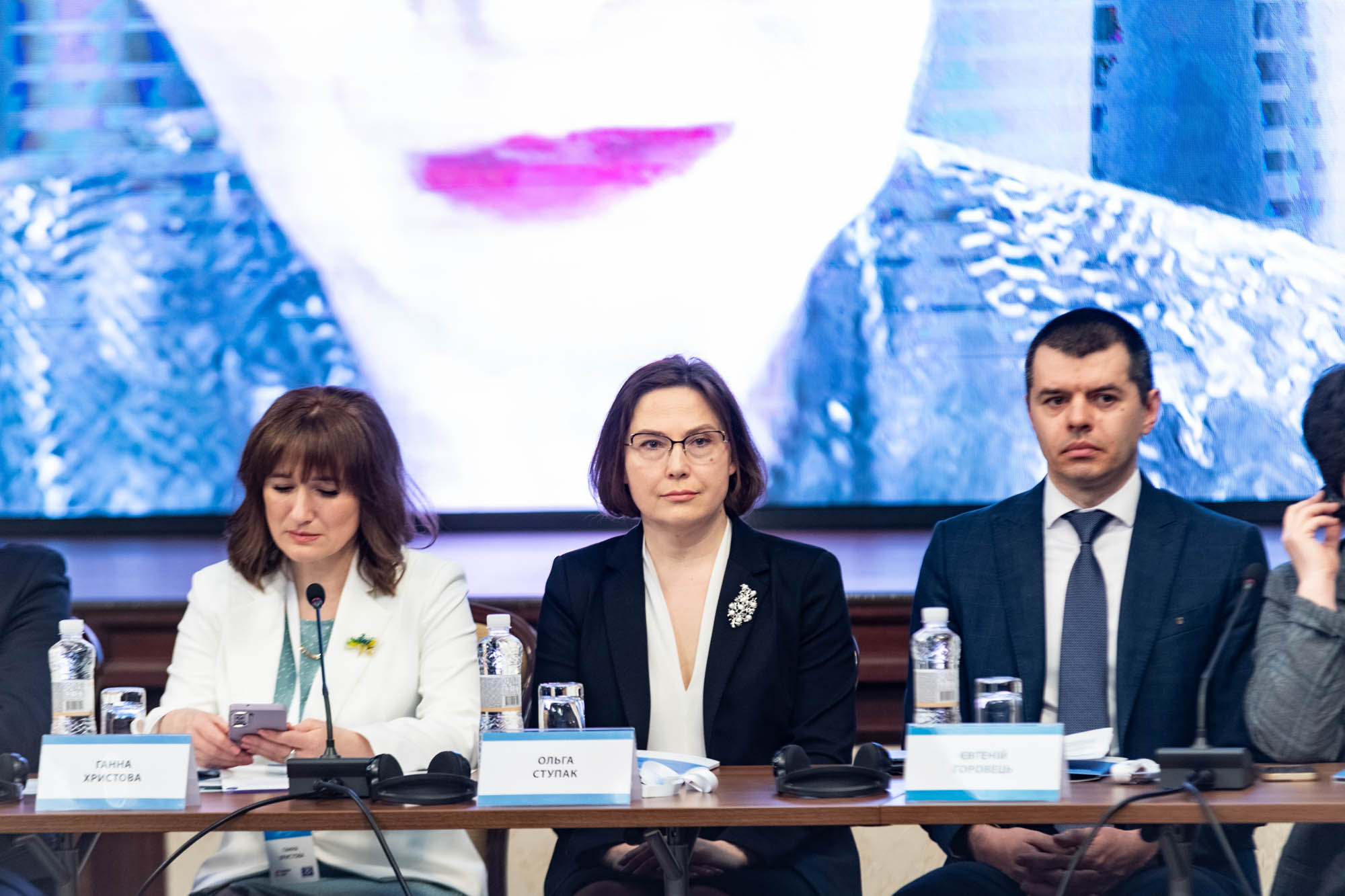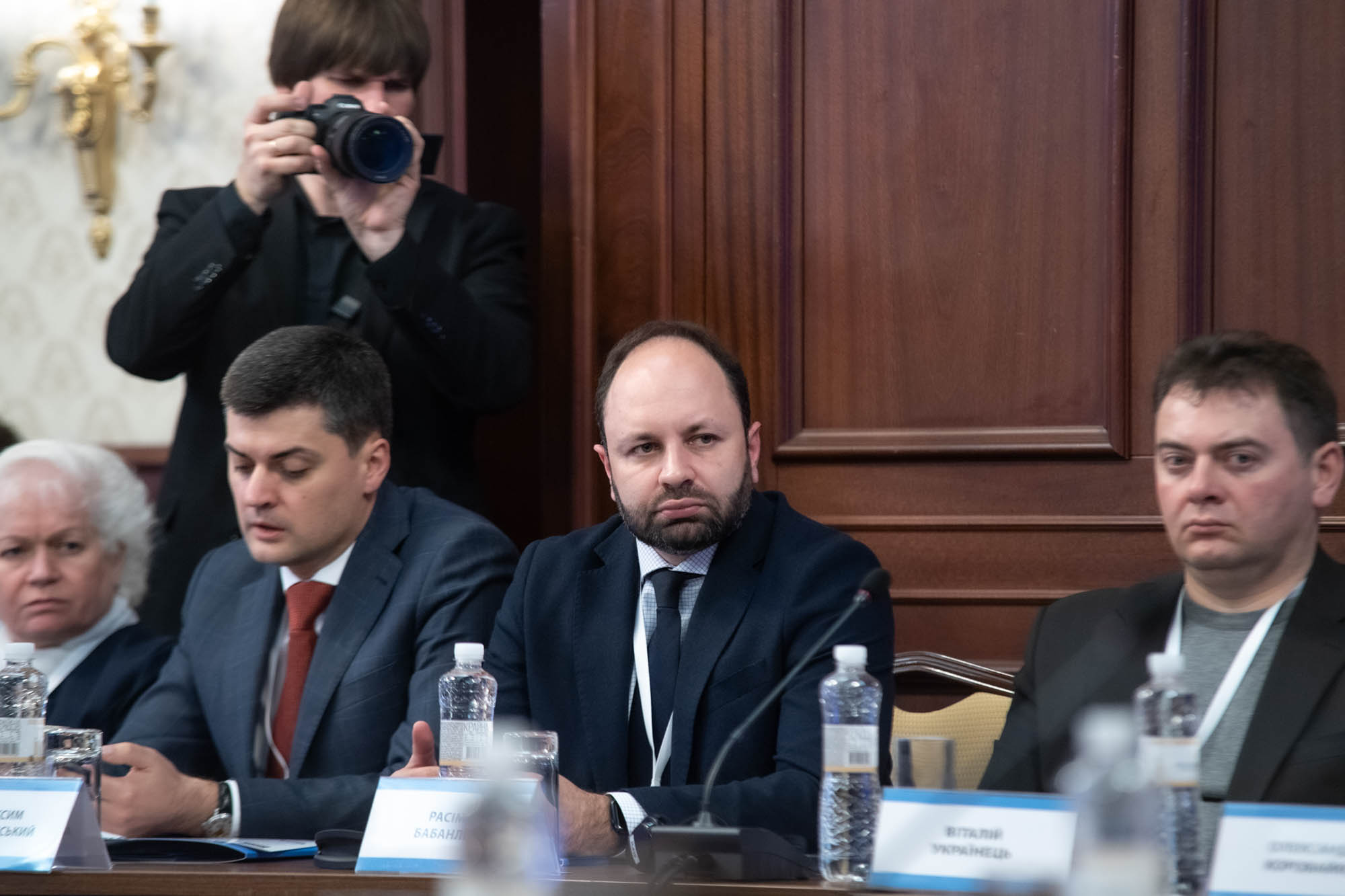Contact center of the Ukrainian Judiciary 044 207-35-46

It is necessary to simplify the procedure for considering cases to confirm the ownership of property destroyed by Russia and to create a wide network of free legal aid in this category of disputes. Procedures for confirming the relevant facts should be effective and primarily victim-centred. The issues were discussed by Olha Stupak, Judge of the Grand Chamber of the Supreme Court, and Rasim Babanly, First Deputy Chief of Staff of the Supreme Court, during the roundtable "Access to compensation for destroyed housing: issues of confirming property rights and ways to resolve them".
The participants of the roundtable included representatives of the legislative, executive, and judicial authorities, lawyers, representatives of NGOs, and other stakeholders. Olha Stupak noted that this discussion format will help to find common understanding and ways to solve the problems that have arisen.
The speaker said that the representatives of the legislative, executive and judicial branches of power share a common opinion on the exclusive role of the court in confirming the right to destroyed or damaged property, while the main issues should be resolved at the stage of administrative procedures. Judges are willing to contribute to the development of appropriate out-of-court mechanisms.
Today, property owners who have lost their title deeds go to court in accordance with Article 392 of the Civil Code of Ukraine, which stipulates that a property owner may file a claim for recognition of his or her ownership in the event of the loss of a document certifying ownership. Such disputes are resolved through the general claims process. Accordingly, the conditions for filing a claim are, firstly, that the person must be the owner of the property and, secondly, that the plaintiff must prove that it is impossible to confirm his or her right to the property out of court. Olha Stupak cited the resolution of the Commercial Cassation Court of the Supreme Court in a case in which the plaintiff sought recognition of ownership of property due to the loss of relevant documents. The cassation court agreed with the conclusion of the appellate court that the claim should be dismissed, as despite the loss of the documents, the plaintiff's ownership was registered in the State Register of Real Estate Rights.

The judge also noted that the resolution of such cases is complicated by the absence of a defendant. She also suggested the possibility of simplifying the procedural mechanisms for resolving claims (applications) for recognition of owners' rights in connection with the loss of title deeds to property destroyed or damaged by the Russian Federation.
Olha Stupak spoke about the difficulties the courts face in adjudicating such cases. In particular, these are neglected grounds for acquiring property. For example, a large number of such disputes relate to the confirmation of ownership of property belonging to members of a collective farm. It is often difficult to establish an individual's membership of such an association due to the lack of relevant documentation.
Problems also arise in cases of confirmation of ownership rights based on a copy of a title deed, as the court must check whether the property is subject to the right of common fractional or joint ownership. Moreover, at one time the legislator supplemented Article 61 of the Family Code of Ukraine with part 5, which referred objects privatised by one of the spouses to common joint property, and subsequently excluded this part.
Olha Stupak noted that in cases where several people own the property, it is necessary to involve all co-owners in the dispute. She therefore asked lawyers providing legal assistance in this category of disputes to explain to applicants that concealing the existence of a dispute from one of the co-owners could in future lead to a positive court decision being overturned at the request of a co-owner who was not involved in the case.
The speaker also said that there may be difficulties in recognising the ownership of flats bought on the exchange under exchange contracts, as the Civil Code of Ukraine requires mandatory notarisation of contracts for the purchase of real estate, and failure to comply with these requirements results in the nullity of the contract.
People who have invested in newly built flats in buildings that have not been started by the developer for some reason may face problems. In such situations, Olha Stupak noted, it will be useful to take into account the conclusions set out in the resolution of the Supreme Court of 14 September 2021 in case No. 359/5719/17. It states that in case of violation of an investor's property rights, he has the right to go to court to protect them by filing a claim for recognition of his property rights and recovery of his property from the illegal possession of another person (Articles 392 and 388 of the Civil Code of Ukraine).
In addition, there is the problem of confirming ownership of private houses that have been built but not put into operation. The speaker noted that in such cases there is no point in going to court. Instead, it is necessary to complete the process of commissioning the relevant facilities out of court.
In conclusion, Olha Stupak made several suggestions. In her opinion, firstly, the procedure for considering the relevant category of disputes should be simplified. Secondly, it is necessary to create a wide network of free legal aid. For instance, applicants in such disputes may be eligible for free legal aid. The issue of exempting the relevant applicants from paying court fees is also relevant.

Rasim Babanly pointed out that one of the principles of creating the Register of Damages Caused by the Aggression of the Russian Federation against Ukraine is to focus primarily on victims: the international Register of Damages is built on the basis of a victim-centred approach. It is about providing remedies and reparations to victims, including the most vulnerable - women and children who have suffered violence. The speaker suggested that the administrative and judicial procedures discussed at the event should also be covered by this principle. Therefore, any proposal to improve the mechanisms for confirming the ownership of destroyed property should be put through it and a conclusion should be drawn as to whether it is appropriate or not.
The speaker also focused on the efficiency of administrative and judicial procedures. If any of them involves excessive steps for the parties, it is inefficient.
Rasim Babanly argued that a broader dialogue is needed on the appropriateness of considering cases of confirmation of property rights due to loss of documents under martial law in a separate procedure. He noted that in most cases, such cases are characterised by the absence of a dispute by their legal nature. This is a clear signal that this issue needs to be discussed at a high level and seen as a potential opportunity to alleviate the burden on people whose homes have been destroyed or damaged as a result of the aggression.
The event was organised by the Council of Europe projects "Strengthening judicial and non-judicial remedies for the human rights protection of the war-affected people in Ukraine" and "Promoting housing solutions for victims of the war in Ukraine" in cooperation with the NGO "Return yours" on 25 April 2024.
